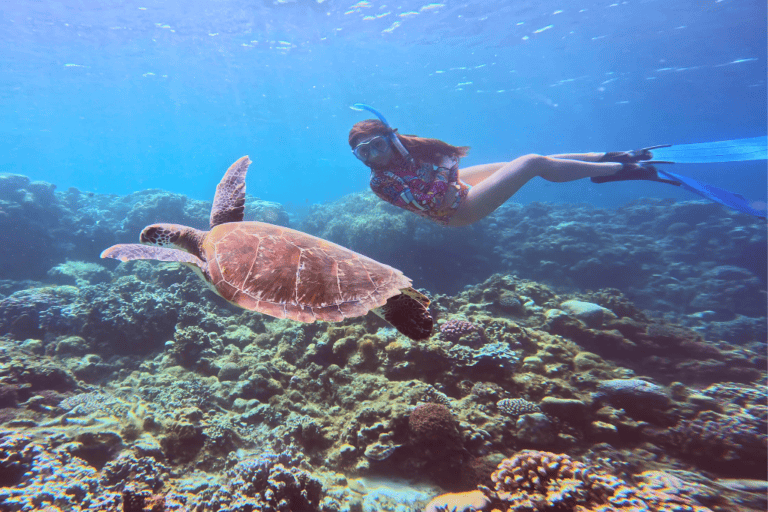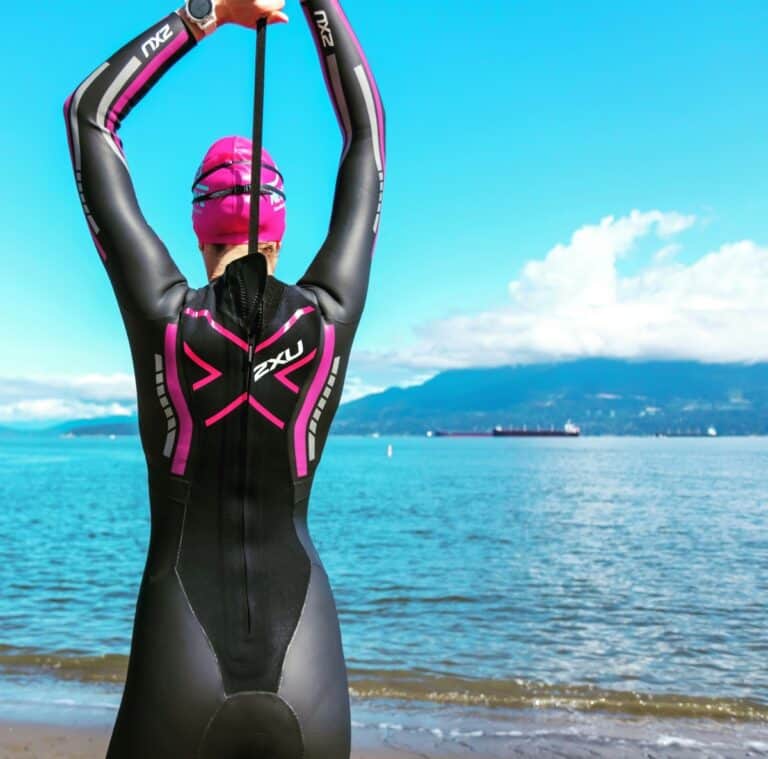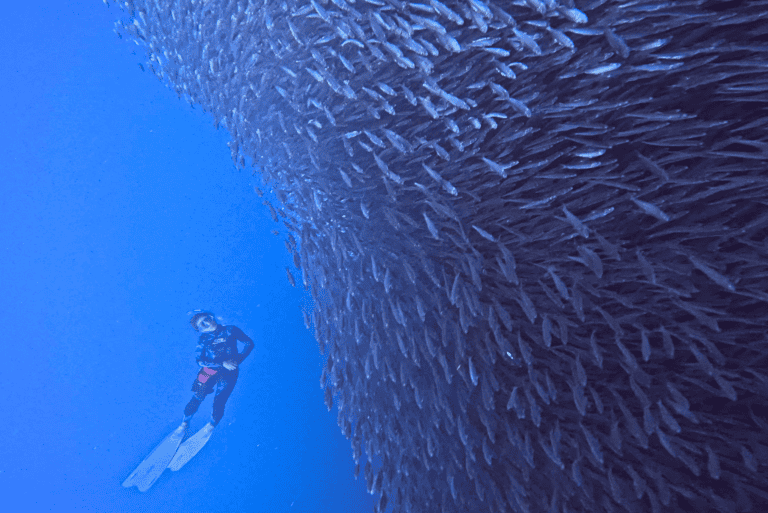Learn Freediving: 10 Important Things You Should Know
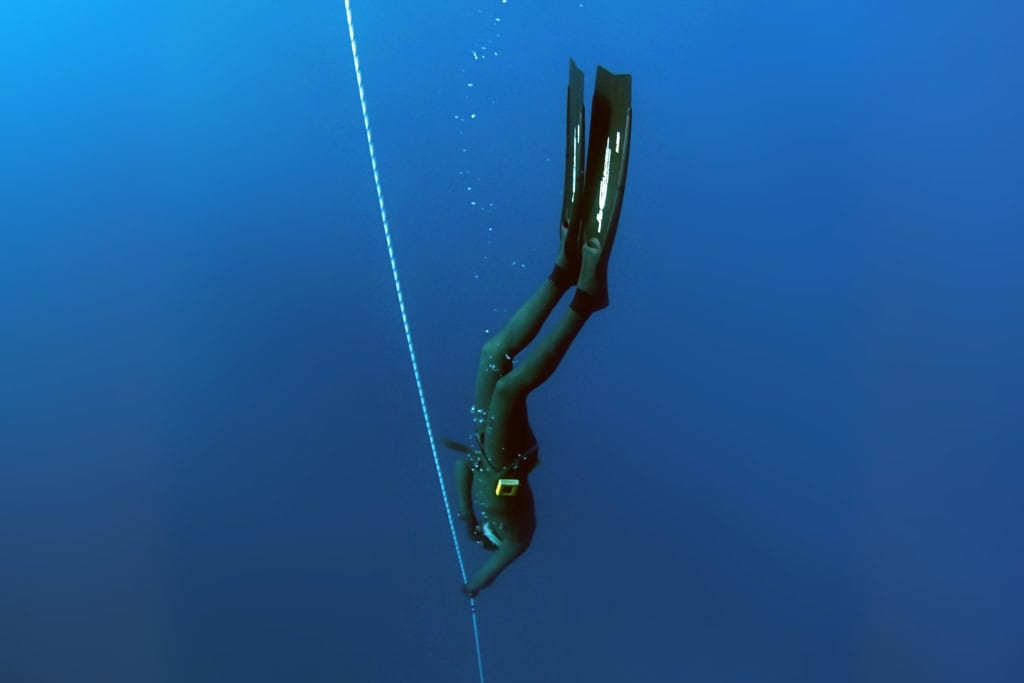
Have you ever thought about learning freediving?
It’s an exciting blend of adventure and calm, offering a unique way to experience the underwater scene. And the best part? No heavy tank or gear required, just a big breath and a sense of wonder.
Not long ago, I dipped my toes (and, okay, quite a bit more) into freediving lessons. As a longtime scuba lover venturing into new waters, I found the journey humbling and thrilling, each dive a learning experience.
So, based on my beginner freediving journey, I’d love to share some essential pointers for you to consider before you learn freediving.
I was fortunate to train with Cuban National Freediving Champion and two-time record holder, Jordan Leyva Alvarez. Jordan’s approach is all about accessibility and safety. He often says, “Freediving is open to everyone, and when you follow the rules, it’s not inherently dangerous. Like any sport, there are risks, but with the right mindset, it’s incredibly safe and rewarding.”
With insights from an expert and my own beginner stumbles, here are ten key things to keep in mind before embarking on your freediving journey.
1. Assess Your Physical Fitness
First things first—let’s talk about fitness. Assessing your physical fitness is a key first step if you’re considering learning freediving. You don’t need the conditioning of an Olympian, but a solid level of physical fitness is essential. Strong cardiovascular health, flexibility, and breath control will give you a head start.
PRO TIP: Yoga and swimming are fantastic prep exercises; they build flexibility and lung capacity, both essential for freediving.
Activities such as running, cycling, or even brisk walking can improve your cardio fitness. Aim to get your heart in top shape, as it’s your biggest ally when you’re holding your breath underwater.
Plus, good flexibility around your chest and diaphragm will help as you descend. This helps your body adapt to underwater pressure like a pro.
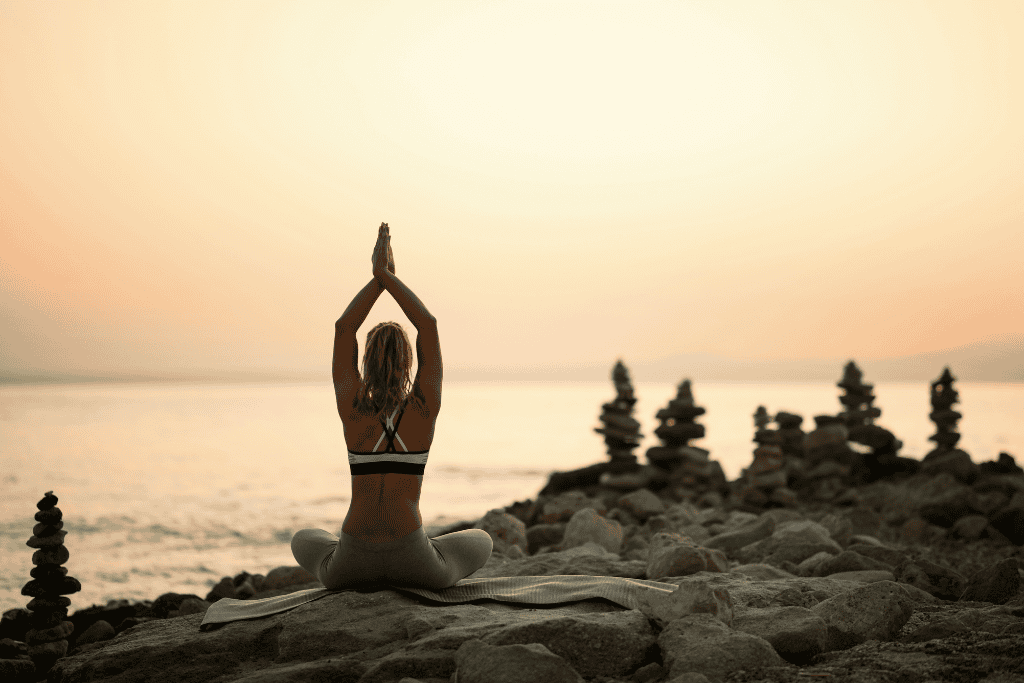
2. Get Medical Clearance Before You Learn Freediving
Before you learn freediving, a thorough medical evaluation is essential. Why? Because freediving is all about adapting to different pressures, and it’s a sport where safety is paramount.
A quick check-up with a healthcare professional can give you peace of mind, especially if you have any underlying conditions like asthma or sinus issues.
Jordan emphasizes this step, saying, “Consulting a healthcare professional to ensure your body can handle the pressure changes is crucial.”
PRO TIP: Think of it as part of your safety gear! Just like you wouldn’t dive without a mask, don’t skip this crucial check before diving into freediving.
3. Seek Professional Training To Learn Freediving
Freediving may look like a simple sport, but there’s so much more to it than just taking a deep breath. Jordan couldn’t stress it enough, saying, “Diving without proper training can be dangerous.”
Enrolling in a certified course is one of the safest ways to learn freediving and ensures you’re equipped with essential techniques.
It’s essential to take a course with reputable organizations like AIDA (International Association for Development of Apnea), PADI (Professional Association of Diving Instructors), and SSI (Scuba Schools International) where experienced instructors guide you through breath-holding, equalizing, and surfacing skills.
IIn a structured course, you’ll also learn vital safety protocols and emergency response techniques.
PRO TIP: Training isn’t just about skill-building—it’s about building confidence. Once you’re trained, each dive will feel not just safe but empowering, letting you enjoy the experience fully.
4. Master the Art of Equalizing While You Learn Freediving
Equalizing is the unsung hero of a smooth descent. Learning how to equalize is essential when you learn freediving.
The skill protects your ears and sinuses from the pressure as you go deeper. Jordan calls it a “must-master skill,” reminding us that learning to equalize in safe, controlled conditions is key to avoiding discomfort—or worse, injury.”
PRO TIP: Practice equalizing on land first, so it becomes second nature. Pinching your nose and gently blowing is a simple way to start. Once in the water, take it slow and give your body time to adjust. Mastering this will make each dive comfortable, allowing you to focus on the magic around you.
5. Always Dive with a Buddy
Here’s one rule to always remember: Never freedive alone. This isn’t just about companionship, it is a without a doubt a vital safety practice.
Freediving with a buddy ensures that someone is always there to assist if you need it. Shallow water blackouts, for instance, can happen suddenly, and having someone nearby could literally be a lifesaver.
PRO TIP: Think of your buddy as a diving partner and your personal lifeguard. Plus, it’s more fun to share the experience! Knowing you’ve got a buddy watching out for you lets you dive with confidence and enjoy the experience with added peace of mind.
6. Understand Your Environment
Every dive location is a world of its own, with unique conditions like currents, visibility, and water temperature that can make or break your experience.
Before you jump in, it’s worth spending a little time getting to know your dive site. This knowledge helps you avoid surprises and lets you enjoy the dive fully.
Before diving, check local weather and tide reports, as currents and tides can change quickly and impact your dive conditions. Visibility might also vary depending on the season, so knowing when the water is clearest can help you plan for the best experience.
PRO TIP: Try chatting with local divers or staff at a dive shop—they often have insider tips on current conditions or hidden spots that guidebooks won’t cover.
If it’s your first time diving at a particular site, consider doing a guided dive. Guides know the terrain, the best entry and exit points, and how to navigate potential challenges like strong currents or areas with lower visibility.
For example, in Moalboal, Philippines, understanding the local environment can significantly enhance your dive experience. The area is famous for its sardine run, where massive schools of sardines swirl around, creating a surreal underwater show. However, to fully enjoy this, timing is crucial.


7. Prepare Mentally for the Dive
Freediving isn’t just a physical sport—it’s a mental one too. Learning to stay calm and manage your instinct to breathe is crucial. Jordan teaches that meditation and visualization techniques help build mental toughness, making it easier to stay composed under pressure.
PRO TIP: Practicing mindfulness can do wonders. Visualize each part of your dive beforehand, from the moment you enter the water to the calm ascent back to the surface. This mental rehearsal helps build confidence, making each dive a little more serene.
8. Embrace Gradual Progression While Learning Freediving
Freediving is a sport where patience pays off. Jordan’s advice is simple but essential: Respect your body’s limits and progress slowly.
Pushing too hard and too soon can lead to discomfort or even injury, especially as your body adapts to the underwater environment.
PRO TIP: Set small, achievable goals for each session. For example, if you’re just beginning, start with dives to around 1.5-3 meters (5-10 feet), focusing on relaxing, equalizing, and enjoying the experience without aiming for depth. Once you feel comfortable at that level, gradually increase your depth by about 1.5 meters (5 feet) per session, allowing your body to adapt and your confidence to grow with each dive.
As you progress, set goals like holding your breath for an additional 5-10 seconds or extending your underwater glide by a few meters. Freediving isn’t a race, so let each new milestone build on the last.
By progressing gradually, you’re building a solid foundation for future dives, which ensures long-term enjoyment and keeps you safe on each dive.
9. Show Respect for the Marine Environment
Freediving gives you an incredible front-row seat to marine life, but with that privilege comes a responsibility to keep it pristine.
As you dive, be mindful—avoid touching coral (it’s more fragile than it looks), don’t feed the fish (they have their own natural diets), and remember that observing is always better than disturbing.
PRO TIP: Leave no trace. If you spot stray plastic or debris, consider bringing a small bag, like a TRSHBG, to collect it and bring it back to shore. Small actions, like avoiding contact with sensitive reefs and picking up litter, go a long way in protecting these underwater ecosystems.
Every bit of care you show helps keep the ocean beautiful for future divers—and makes your dive feel that much more rewarding.
10. Find Community and Support While You Learn Freediving
Joining a freediving community or club enhances the whole experience. Jordan often emphasizes that freediving is more than a sport – it’s about connecting with people who share your passion.
Being part of a group allows you to learn from others, share tips, and celebrate milestones together.
PRO TIP: Seek out local groups or online communities where you can get advice, share stories, and even find buddies for future dives. The support and camaraderie you’ll find make freediving even more rewarding, turning each dive into a shared adventure.
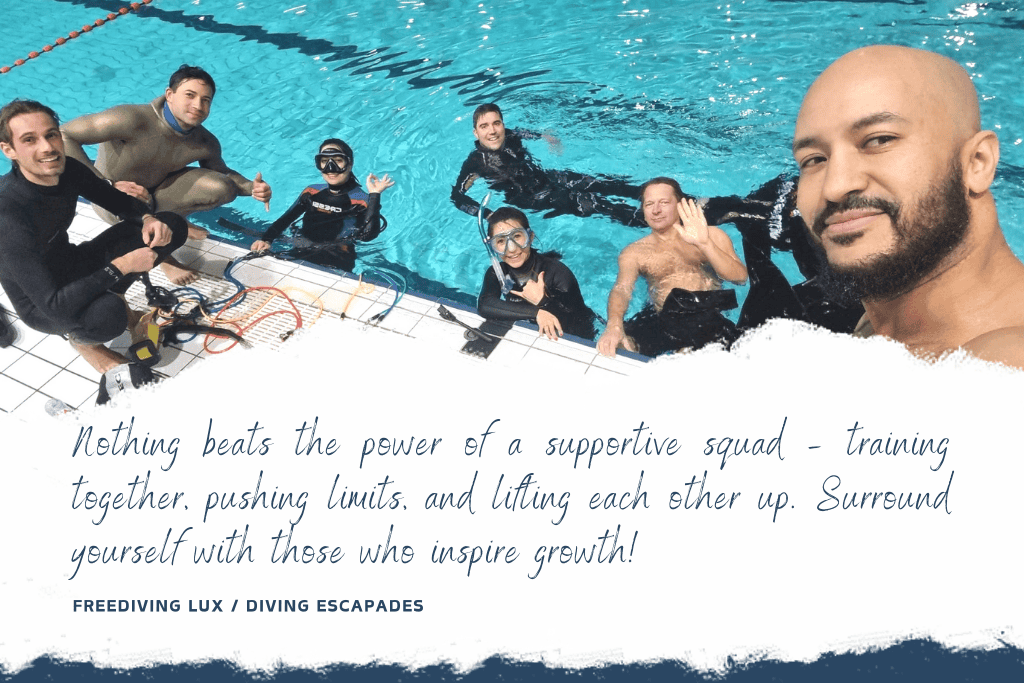
The Wrap-Up
If you’re ready to learn freediving and dive deeper into freediving, Jordan teaches at Freediving Lux in Luxembourg, where he shares his passion and expertise with aspiring divers. You can learn more at Freediving Lux or follow them on Instagram for a peek into this enthusiastic community.
Overall, freediving is more than just holding your breath—it’s about exploring, respecting, and connecting with the ocean (or lakes) in ways few people ever do.
Armed with these tips and a dash of humor (essential for any adventure), you’re prepared to dive in safely, savoring each moment and every quiet encounter beneath the surface. And who knows? You may even find yourself transformed, with a story or two to tell.
Remember, in freediving and in life, go slowly, savor the journey, and always, always leave things better than you found them—oceans and dive buddies included. Happy diving!
Disclosure: This article is based on my personal experiences, opinions and an interview with the freediving instructor, for which permission was granted to share on the Diving Escapades website. No compensation or incentives have been received for this article. Should there be any compensations or gifts in the future, they will be clearly disclosed in the respective post. I am dedicated to providing honest and unbiased insights to my readers.

